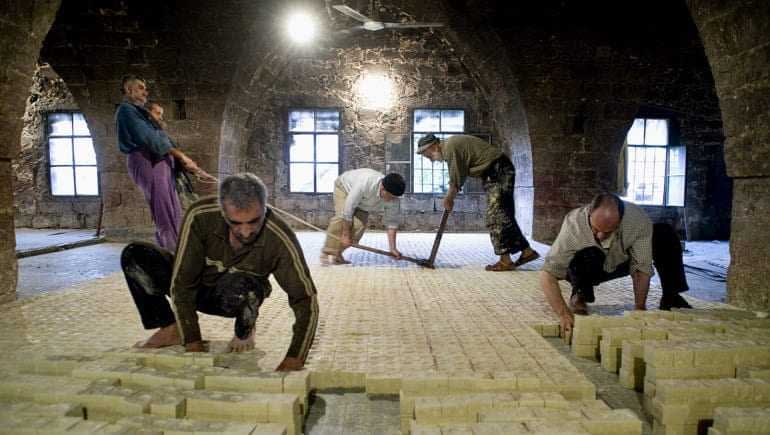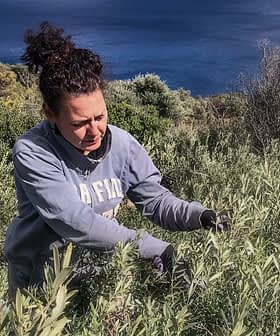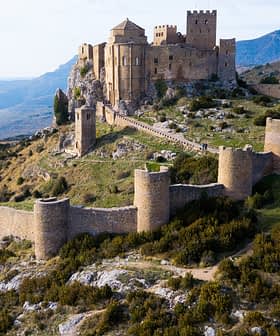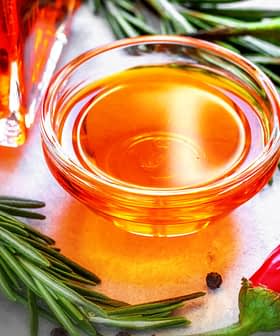Among the Casualties in Aleppo, an Ancient Olive Oil Soap
The traditional soap of Aleppo, made from olive oil and laurel oil, has been produced in the same way for centuries in Syria, known for its natural and beneficial effects on the skin. Due to the ongoing conflict in Aleppo, soap makers have been forced to flee the city, leaving behind their workshops and homes, with the future of Aleppo soap production now uncertain as the city remains under the control of radical militias.

82 percent olive oil, 12 percent laurel oil and soda. There are only three ingredients in the world’s oldest soap: the soap of Aleppo. The product has been the same for centuries beyond the walls of the historic citadel of Aleppo, in Northern Syria.
Being all natural without any synthetics or other additives, the soap of Aleppo is made from local olive oil, and it is renowned for its beneficial effects on the skin. The soap moisturizes and adapts to all skin types, from dry to delicate because it regulates the production of sebum. It is even used for hair care.
Syrian soap producers around Aleppo used to gain their livelihood from local sales and, more recently, in international markets. In the last 30 years or so, in the United States, Europe, and Japan plenty of consumers began to know and search for this small green bar with an Arabic stamp and a magic smell. But in reality the first exports of this soap were centuries ago by crusaders, coming from the Northern Syrian city.
A long time has passed by, but this land still remains a battlefield. Turmoil between rebels and Assad forces have led to the near complete destruction of the city. Indeed, 2012 could be considered the last year of production of the green gold from Aleppo.

Soap makers fled the city. They left their workshops and their homes in Aleppo when they could not easily find laurel oil from villages surrounding the city and as they grew fearful for their families’ safety.
Now they are abroad, in Lebanon, in the UK, still producing and marketing “laurel soap” far from the place where the tradition was born. The quality standards remain high as the know-how is still there, but no one can say: “This is an Aleppo soap.”
A few days ago news agencies reported that the leader of Free Syrian Army left the city and his 14,000 men were directed to Turkey. Today, Aleppo and the surrounding area is under the control of radical militias. The return of soap makers and their families will not happen any time soon.
Threatened by mass-produced competitors, and now by radicals, Aleppo soap’s future seems uncertain.









